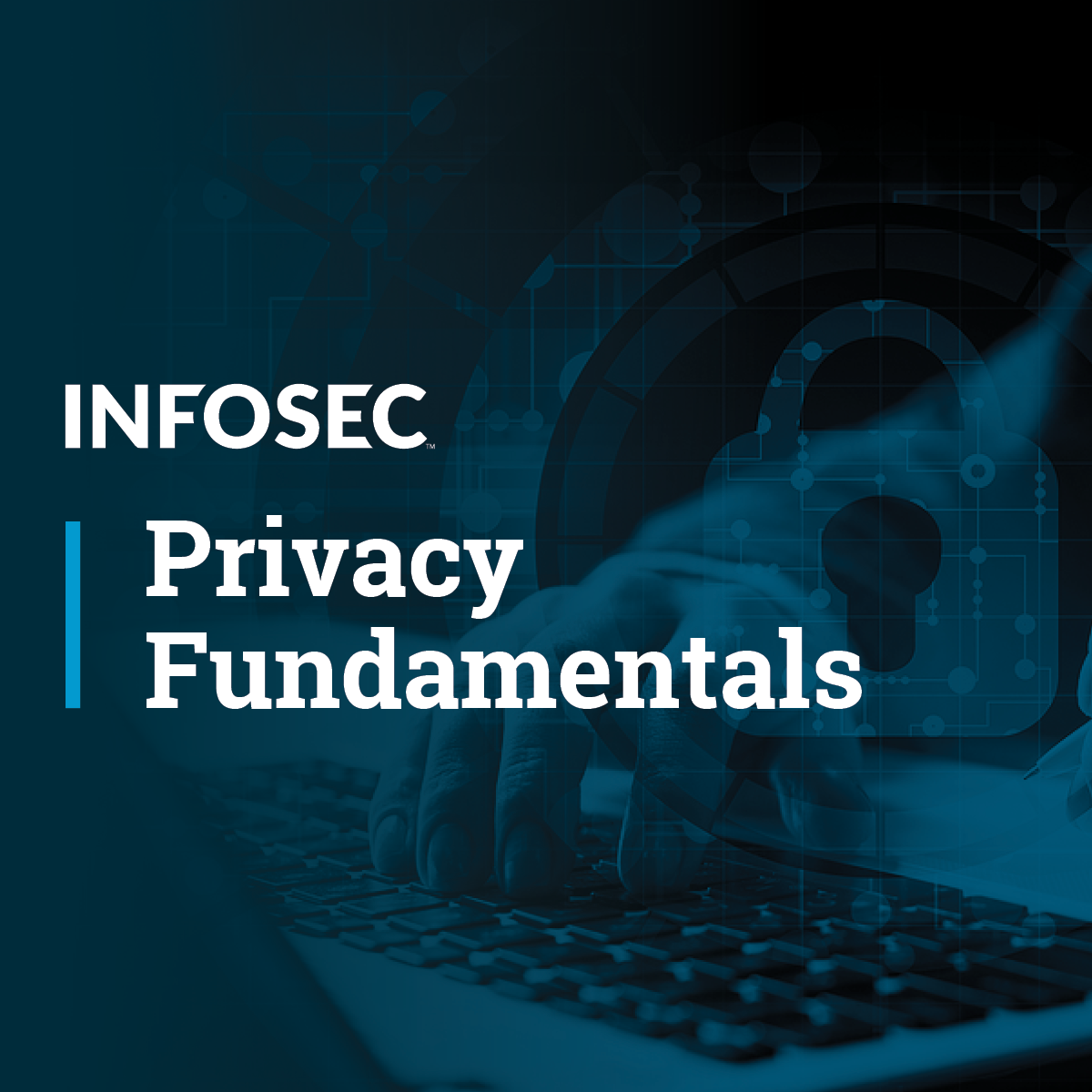Privacy Analyst
Navigating the World of Data Privacy: A Career as a Privacy Analyst
A Privacy Analyst serves as a crucial guardian of information in an increasingly data-driven world. At a high level, these professionals are responsible for ensuring that an organization's practices regarding the collection, storage, use, and sharing of personal information align with legal requirements, ethical standards, and public trust. They are the sentinels who help organizations navigate the complex web of privacy regulations and protect sensitive data from unauthorized access or misuse.
Working as a Privacy Analyst can be both engaging and exciting. Imagine being at the forefront of developing and implementing strategies that directly impact how a company handles its most valuable asset – data. This role often involves a fascinating blend of legal interpretation, technological understanding, and strategic thinking. Furthermore, as data privacy becomes a more significant global concern, the work of a Privacy Analyst contributes to building and maintaining the trust between organizations and their customers, which is a cornerstone of modern business.
Core Responsibilities
The day-to-day life of a Privacy Analyst is multifaceted, involving a range of critical tasks to protect data and ensure compliance. These professionals are integral to an organization's efforts to maintain data integrity and uphold privacy standards.
Risk Assessments and Audits
A key function of a Privacy Analyst is to conduct thorough risk assessments and privacy audits. This involves meticulously examining an organization's data processing activities, identifying potential vulnerabilities where personal data could be compromised, and evaluating the likelihood and impact of such events. These assessments help the organization understand its privacy risk landscape.
Following an assessment, analysts will often recommend specific measures to mitigate identified risks. This might include suggesting changes to data handling processes, implementing new security controls, or updating privacy policies. Regular audits ensure that these measures are effective and that the organization remains compliant with evolving regulations.
The ability to analyze data flows and scrutinize existing practices with a critical eye is paramount for success in this area. It requires a methodical approach and a deep understanding of how data moves within and outside the organization. This analytical mindset is crucial for proactively identifying and addressing potential privacy issues before they escalate.
These courses offer a solid introduction to understanding and managing privacy risks and compliance, fundamental skills for any aspiring Privacy Analyst.
Policy Development and Compliance Monitoring
Privacy Analysts are often at the heart of developing and implementing comprehensive privacy policies and procedures. This involves translating complex legal and regulatory requirements, such as those found in GDPR or CCPA, into clear, actionable guidelines that employees can understand and follow. These policies must be tailored to the specific needs and operations of the organization.
Once policies are in place, continuous monitoring is essential to ensure ongoing compliance. This includes tracking changes in privacy laws and updating internal policies accordingly. Analysts may also be involved in developing and delivering training programs to educate staff on their privacy-related responsibilities.
Effective policy development requires not only legal acumen but also strong communication skills to ensure that these policies are understood and adopted across the organization. The goal is to foster a culture of privacy where every employee understands their role in protecting personal data.
Understanding how to develop and implement effective privacy policies is a core competency. These courses provide foundational knowledge in policy creation and governance.
To further understand the intricacies of privacy policy and governance, these books offer valuable insights.
Incident Response
In the unfortunate event of a data breach or privacy incident, Privacy Analysts play a critical role in the response efforts. This can involve investigating the incident to understand its scope and impact, working with legal teams to navigate reporting requirements, and coordinating with communication teams on messaging to affected individuals and stakeholders.
A key aspect of incident response is having a well-defined plan in place before an incident occurs. Privacy Analysts may contribute to the development and maintenance of these data breach response plans. This ensures that the organization can react quickly and effectively to minimize harm and comply with legal obligations.
The ability to remain calm under pressure, think critically to assess the situation, and collaborate effectively with various teams is crucial during incident response. This work directly contributes to mitigating the negative consequences of a privacy incident and restoring trust.
Preparing for and responding to data breaches are critical aspects of the Privacy Analyst role. The following courses offer knowledge in incident response and data protection.
Skills & Qualifications
A successful career as a Privacy Analyst requires a blend of specific technical knowledge, well-honed soft skills, and often, recognized industry certifications. Aspiring analysts should focus on developing a comprehensive skill set to meet the demands of this evolving field.
Technical Prowess
A strong understanding of data privacy laws and regulations is fundamental. This includes in-depth knowledge of frameworks like the General Data Protection Regulation (GDPR) in Europe, the California Consumer Privacy Act (CCPA) in the United States, and other regional or industry-specific regulations like HIPAA for healthcare data. Analysts must stay current with legal developments and be able to interpret complex requirements.
Basic cybersecurity knowledge is also essential. This includes understanding concepts like data encryption, access controls, network security, and vulnerability management. While not necessarily a deep technical expert, a Privacy Analyst needs to comprehend how data is protected from a technical standpoint to effectively assess risks and collaborate with IT and security teams.
Familiarity with privacy-enhancing technologies (PETs) and data protection tools is increasingly important. This might involve tools for data mapping, data discovery, consent management, or de-identification. Understanding the capabilities of these technologies helps in designing and implementing effective privacy solutions.
For those looking to build a strong technical foundation in privacy and cybersecurity, these courses offer comprehensive learning on relevant regulations and security principles.
These books provide in-depth knowledge of cryptography and network security, essential technical areas for a Privacy Analyst.
Essential Soft Skills
Strong communication skills are paramount for a Privacy Analyst. They must be able to articulate complex privacy concepts clearly and concisely to diverse audiences, including technical teams, legal counsel, business leaders, and employees without a privacy background. This includes both written and verbal communication.
Analytical and problem-solving abilities are also critical. Privacy Analysts need to meticulously examine data practices, identify potential issues, and develop effective solutions. This requires a detail-oriented approach and the ability to think critically about complex situations.
Other important soft skills include attention to detail, discretion in handling sensitive information, and the ability to collaborate effectively within a team. Given the constantly changing regulatory landscape, adaptability and a commitment to continuous learning are also highly valued.
Developing strong communication and analytical skills is crucial. These courses can help in honing these essential soft skills.
Valuable Certifications
Several professional certifications can significantly enhance a Privacy Analyst's credentials and demonstrate a commitment to the field. The International Association of Privacy Professionals (IAPP) offers some of the most recognized certifications globally.
The Certified Information Privacy Professional (CIPP) is a widely respected credential, with various concentrations such as CIPP/US (United States private sector), CIPP/E (Europe), CIPP/A (Asia), and CIPP/C (Canada). These certifications validate knowledge of broad conceptual privacy and data protection laws and practices relevant to specific regions or jurisdictions.
Another valuable IAPP certification is the Certified Information Privacy Technologist (CIPT). This certification is designed for professionals who are responsible for designing, building, and managing privacy controls within technology systems. It demonstrates an understanding of how to embed privacy into IT infrastructure. Other certifications, like the Certified Information Privacy Manager (CIPM), focus on the operational aspects of managing a privacy program.
For those looking to validate their expertise, IAPP certifications are highly regarded. The following courses can serve as excellent preparation for these exams or provide a general understanding of the topics covered.
Individuals interested in cybersecurity certifications may find the CISSP a valuable addition to their profile.
Educational Pathways
The journey to becoming a Privacy Analyst can begin from various educational starting points. While no single path is definitive, certain academic backgrounds and focused training can provide a strong foundation for success in this field. Whether you are a student exploring future careers or a professional considering a pivot, understanding these pathways is crucial.
Online courses have emerged as a highly accessible and flexible way to build foundational knowledge and acquire specific skills relevant to privacy analysis. Platforms like OpenCourser offer a vast catalog of courses covering data protection laws, cybersecurity basics, risk management, and ethical data handling. These courses can be particularly beneficial for individuals looking to supplement traditional degrees, upskill in their current roles, or gain a comprehensive understanding before committing to a full degree program. Many online courses also offer projects or case studies that allow learners to apply their knowledge to practical scenarios, bridging the gap between theory and real-world application.
Relevant Degree Programs
A bachelor's degree is often the minimum educational requirement, with common fields of study including law, information technology (IT), cybersecurity, or business administration. A legal background provides a strong understanding of regulatory frameworks and compliance, which is central to the Privacy Analyst role.
Degrees in IT or cybersecurity offer the technical knowledge needed to understand data systems, security vulnerabilities, and data protection technologies. This technical acumen is vital for conducting effective risk assessments and collaborating with technical teams. Some universities are also beginning to offer specialized degrees or concentrations in data privacy or information governance, directly aligning with the needs of this profession.
For individuals considering a career change, a relevant master's degree or graduate certificate in privacy, cybersecurity, or data law can provide the specialized knowledge and credentials to transition effectively. These advanced programs often delve deeper into specific regulatory landscapes and emerging privacy challenges.
These courses delve into the legal and ethical dimensions of privacy, which are critical for analysts working with data protection regulations.
Certification Programs
Certification programs, particularly those offered by the International Association of Privacy Professionals (IAPP), are highly valued in the privacy field. As mentioned earlier, certifications like the CIPP, CIPT, and CIPM demonstrate specialized knowledge and a commitment to the profession. These programs often have their own study materials and exams, and many training providers offer courses specifically designed to prepare candidates for these certifications.
Obtaining a relevant certification can be a significant career accelerator, especially for those transitioning from other fields or seeking to advance into more senior privacy roles. These certifications signal to employers a validated level of expertise in privacy principles, practices, and technologies. Many organizations actively seek candidates with these credentials.
Beyond IAPP certifications, other credentials in cybersecurity (like CISSP or CISM) or auditing (like CISA) can also be beneficial, depending on the specific focus of the Privacy Analyst role. These can complement privacy-specific certifications by demonstrating broader expertise in related domains. OpenCourser features many courses that can help you prepare for these certifications, allowing you to browse through options in Information Security and Cybersecurity.
For those aiming to achieve industry-recognized certifications, these courses provide targeted preparation and insights into specific privacy domains and regulations.
Workshops and Bootcamps
Workshops and bootcamps offer intensive, focused training on specific aspects of privacy or related skills. These can range from short, topic-specific workshops on a new regulation to longer, more comprehensive bootcamps designed to provide a foundational understanding of the entire privacy landscape.
These shorter-term learning opportunities can be excellent for quickly gaining knowledge in a particular area or for staying updated on the latest developments in the field. They are often practical and hands-on, providing attendees with actionable skills and insights that they can immediately apply in their work.
Many industry conferences and professional organizations also offer workshops and training sessions as part of their events. These can be valuable not only for the educational content but also for networking opportunities with other privacy professionals. Exploring resources on OpenCourser's Learner's Guide can help you identify how to best leverage such learning opportunities and integrate them into your career development plan.
Bootcamps and workshops can provide intensive training. While specific bootcamps aren't listed, these courses offer focused learning on privacy basics and data handling, similar to what one might gain from shorter, intensive programs.
Career Progression
The career path for a Privacy Analyst offers significant opportunities for growth and advancement. As organizations increasingly recognize the strategic importance of data privacy, skilled professionals in this field can expect a rewarding trajectory. The journey often begins with foundational roles and can lead to senior leadership positions influencing an organization's overall privacy strategy.
For those just starting or considering this path, it's encouraging to know that the skills and knowledge gained as a Privacy Analyst are highly transferable and in demand. While the path requires dedication and continuous learning, each step builds a valuable foundation for future opportunities. Even if the ultimate goal of a Chief Privacy Officer seems distant, the experience gained at each level is substantial and opens doors to various specialized or managerial roles within the broader fields of compliance, risk management, and information governance.
Entry-Level Roles
Individuals typically enter the privacy field in roles such as Privacy Analyst, Junior Privacy Analyst, or Compliance Assistant. In these positions, responsibilities often include supporting senior analysts in conducting privacy impact assessments, assisting with compliance audits, and helping to maintain privacy documentation.
Entry-level professionals will focus on learning the intricacies of relevant privacy laws and regulations, understanding the organization's data flows, and becoming proficient in using privacy management tools and software. This stage is crucial for building a solid foundation in both the legal and operational aspects of data privacy.
These roles provide invaluable hands-on experience and mentorship opportunities, allowing newcomers to develop their skills under the guidance of more experienced professionals. Success in these initial roles often depends on a strong willingness to learn, attention to detail, and the ability to apply theoretical knowledge to practical situations.
Mid-Career Advancement
With a few years of experience and demonstrated expertise, Privacy Analysts can advance to roles like Senior Privacy Analyst or Privacy Specialist. At this stage, responsibilities become more complex and may involve leading privacy projects, developing and delivering privacy training programs, and taking a more active role in policy development.
Mid-career professionals are expected to have a deeper understanding of privacy laws and best practices, and they often begin to specialize in particular areas, such as healthcare privacy, financial data privacy, or privacy-enhancing technologies. They may also start managing small teams or mentoring junior analysts.
This level often requires stronger analytical and strategic thinking skills, as individuals are tasked with not just implementing privacy controls but also contributing to the design and improvement of the organization's overall privacy program. Obtaining advanced certifications can also be beneficial for career progression at this stage.
Senior and Leadership Roles
Experienced privacy professionals can aspire to senior leadership positions such as Privacy Manager, Director of Privacy, or even Chief Privacy Officer (CPO). In these roles, individuals are responsible for setting the strategic direction for the organization's privacy program, ensuring company-wide compliance, and advising executive leadership on privacy-related matters.
Senior roles involve a high degree of responsibility, including managing significant privacy risks, overseeing incident response efforts, and representing the organization to regulatory authorities. These positions require not only deep privacy expertise but also strong leadership, communication, and stakeholder management skills.
The path to a CPO or equivalent role typically involves many years of experience in progressively responsible privacy positions, a proven track record of success, and often, advanced degrees or certifications. These leaders play a critical role in embedding privacy into the corporate culture and ensuring that data is handled ethically and responsibly.
Industry Demand & Trends
The demand for Privacy Analysts and other privacy professionals is robust and projected to grow significantly. This growth is fueled by several factors, including the increasing volume of personal data being collected and processed by organizations, the proliferation of new data privacy regulations worldwide, and heightened public awareness and concern about how personal information is used. As businesses and consumers alike become more data-savvy, the need for experts who can navigate this complex landscape is more critical than ever.
For those considering a career in privacy, this strong demand translates into favorable job prospects and competitive salaries. The field offers opportunities across a wide range of industries, as virtually every organization that handles personal data needs to address privacy considerations. Understanding current trends can help aspiring analysts position themselves for success in this dynamic and expanding field. According to the U.S. Bureau of Labor Statistics, employment of information security analysts, a closely related field with overlapping skills, is projected to grow 33 percent from 2023 to 2033, much faster than the average for all occupations.
Impact of AI on Privacy Tools
Artificial Intelligence (AI) is increasingly being integrated into privacy tools and practices. AI-powered solutions can help automate tasks such as data discovery and classification, risk assessment, and monitoring for compliance. This can enhance the efficiency and effectiveness of privacy programs.
However, the use of AI also introduces new privacy challenges. For example, AI systems themselves can be biased, or their use in processing personal data can raise ethical concerns. Privacy Analysts will need to understand both the benefits and risks of AI in the context of privacy, and they may be involved in assessing and mitigating the privacy implications of AI systems used by their organizations.
The evolving role of AI means that Privacy Analysts should stay informed about AI technologies and their impact on data privacy. This may involve continuous learning and developing new skills related to AI governance and ethics. OpenCourser's Artificial Intelligence category page can be a great starting point for finding relevant courses.
The intersection of AI and privacy is a rapidly evolving area. These courses address the ethical considerations and responsible application of AI technologies.
Understanding the broader implications of AI and its responsible use is critical. These books delve into surveillance capitalism and adversarial machine learning.
Remote Work Trends
The prevalence of remote and hybrid work models has increased significantly in recent years, and this trend extends to the field of privacy analysis. Many organizations are open to hiring Privacy Analysts for remote positions, offering greater flexibility and access to a broader talent pool. Job boards often feature a significant number of remote opportunities for privacy professionals.
Working remotely as a Privacy Analyst requires strong self-discipline, excellent communication skills to collaborate effectively with distributed teams, and proficiency in using remote collaboration tools. Organizations also need to ensure that their privacy and security protocols are robust enough to support remote work arrangements, particularly when sensitive data is being handled.
For individuals seeking remote work, the privacy field offers promising opportunities. This flexibility can enhance work-life balance and allow professionals to work for organizations regardless of their geographic location.
Salary Ranges by Region
Salaries for Privacy Analysts can vary based on several factors, including geographic location, industry, years of experience, educational qualifications, and certifications. Generally, positions in major metropolitan areas or regions with a high cost of living and strong demand for tech talent tend to offer higher compensation.
Entry-level positions for Privacy Analysts in the United States can command salaries ranging from approximately $75,000 to $95,000 annually. With experience and increased responsibilities, mid-career and senior Privacy Analysts can earn significantly more, potentially reaching well into six figures. For example, average base salaries for privacy analysts in the US have been reported around $124,399, with ranges from $58,738 to $263,459. Chief Privacy Officers and those in top leadership roles can earn even higher compensation, sometimes exceeding $250,000.
It's advisable to research salary benchmarks specific to your region and industry using resources like online salary aggregators and industry reports. The International Association of Privacy Professionals (IAPP) also periodically publishes salary surveys that can provide valuable insights. As an example of regional variation, a job posting for a Privacy Analyst III with the Texas State Auditor's Office listed a salary range of $69,572 - $114,099.
Ethical Challenges
Privacy Analysts frequently encounter complex ethical dilemmas in their work. Navigating these challenges requires a strong ethical compass, a deep understanding of privacy principles, and the ability to balance competing interests. The decisions made by Privacy Analysts can have significant implications for individuals' rights and an organization's reputation.
This field is not just about legal compliance; it's about upholding a fundamental human right to privacy. Therefore, an ethical mindset is crucial for responsibly handling sensitive data and ensuring that technology is used in a way that respects individual autonomy and dignity. Professionals in this role must be prepared to grapple with nuanced situations where the "right" course of action may not always be clear-cut.
Balancing Privacy vs. Data Monetization
One of the most significant ethical challenges is the tension between protecting individual privacy and the organizational desire to leverage data for commercial purposes, often referred to as data monetization. Many business models rely on collecting and analyzing personal data to offer personalized services, targeted advertising, or to develop new products. While these activities can provide value to both businesses and consumers, they also carry inherent privacy risks.
Privacy Analysts must help their organizations find an ethical balance. This involves ensuring that data collection and use practices are transparent, that individuals have meaningful control over their data, and that data is only used for legitimate and clearly defined purposes. It may also involve advocating for privacy-enhancing techniques, such as de-identification or aggregation, that can reduce privacy risks while still allowing for valuable data analysis.
This balancing act requires careful consideration of legal requirements, ethical principles, and societal expectations. It's about enabling innovation and business growth in a way that respects and protects individual privacy rights. OpenCourser offers courses in Business and Marketing that can provide context on how data is utilized in these domains.
These courses explore the ethical dimensions of data use and the importance of responsible data handling, which are key when considering data monetization.
Understanding how data is valued and potentially monetized, while respecting privacy, is a complex issue. These books offer critical perspectives.
Handling Government Surveillance Demands
Organizations may sometimes receive requests from government agencies for access to personal data, often for law enforcement or national security purposes. Handling these demands presents a significant ethical and legal challenge for Privacy Analysts and their organizations. There's a need to comply with lawful requests while also protecting the privacy rights of individuals to the greatest extent possible.
Privacy Analysts may be involved in developing policies and procedures for responding to government data requests. This includes verifying the legality and scope of each request, ensuring that only the necessary data is disclosed, and maintaining records of such disclosures. It also involves understanding the legal frameworks that govern such requests in different jurisdictions.
This area requires a careful navigation of legal obligations and ethical responsibilities. Transparency with users about how the organization handles government requests (to the extent legally permissible) can also be an important consideration in maintaining trust.
Bias in AI-Driven Privacy Tools
As AI becomes more integrated into privacy solutions, there's a growing concern about potential bias in these AI-driven tools. AI algorithms are trained on data, and if that data reflects existing societal biases (e.g., related to race, gender, or socioeconomic status), the AI tool itself may perpetuate or even amplify these biases in its decision-making or analysis.
For example, an AI tool used for identifying high-risk data processing activities might disproportionately flag activities involving certain demographic groups if it was trained on biased data. This could lead to unfair scrutiny or a disparate impact on those groups. Privacy Analysts need to be aware of these risks when evaluating or implementing AI-powered privacy tools.
Addressing bias in AI requires careful attention to data sources, algorithm design, and ongoing monitoring and auditing of AI systems. It's an emerging area where ethical considerations are paramount to ensure that privacy technologies are fair and equitable. Exploring courses in Data Science can provide a deeper understanding of how AI models are built and where biases can arise.
These courses cover the ethical implications of AI and data-driven technologies, including the potential for bias and how to promote fairness.
Global Regulatory Landscape
The work of a Privacy Analyst is increasingly global, as data flows across borders and organizations operate in multiple jurisdictions. Understanding the complex and evolving landscape of international data privacy regulations is therefore essential. Professionals in this field must be adept at navigating these diverse legal frameworks to ensure their organizations meet compliance obligations worldwide.
This global perspective is crucial because data privacy laws can vary significantly from one country or region to another. What is permissible in one jurisdiction may be strictly prohibited in another. Therefore, a Privacy Analyst working for a multinational organization, or even one with an international customer base, needs to be aware of these differences and how they impact the organization's data handling practices.
GDPR (EU) vs. CCPA (US)
The European Union's General Data Protection Regulation (GDPR) and the California Consumer Privacy Act (CCPA), as amended by the California Privacy Rights Act (CPRA), are two of the most influential data privacy laws globally. While both aim to enhance privacy protections for individuals, they have distinct approaches, scopes, and requirements.
GDPR, for instance, is known for its comprehensive and stringent requirements, including principles like data minimization, purpose limitation, and the need for a lawful basis for processing personal data. It grants individuals a broad set of rights, such as the right to access, rectification, erasure ("right to be forgotten"), and data portability. CCPA/CPRA also provides significant consumer rights, including the right to know what personal information is collected, the right to delete that information, and the right to opt-out of the sale or sharing of personal information. Understanding the nuances between these laws, such as differences in the definition of personal data, consent requirements, and breach notification timelines, is critical for organizations operating in or serving individuals in these jurisdictions.
Privacy Analysts are often tasked with interpreting these regulations and ensuring their organization's practices align with both. This may involve conducting comparative analyses, developing region-specific policies, and implementing technical and organizational measures to meet diverse compliance demands.
For a deeper dive into these critical regulations, the following courses offer valuable insights into GDPR and general privacy law principles that are also relevant to understanding CCPA.
APAC Frameworks (PDPA, PIPL)
The Asia-Pacific (APAC) region also has a rapidly evolving privacy landscape, with numerous countries enacting comprehensive data protection laws. Examples include Singapore's Personal Data Protection Act (PDPA) and China's Personal Information Protection Law (PIPL). These frameworks, while often drawing inspiration from laws like GDPR, also have their own unique characteristics and requirements.
PIPL, for example, is known for its strict cross-border data transfer rules and significant penalties for non-compliance. Singapore's PDPA establishes a general data protection framework covering the collection, use, and disclosure of personal data. Privacy Analysts working with organizations that have a presence or customer base in the APAC region must familiarize themselves with these and other relevant national laws, such as India's Digital Personal Data Protection Act (DPDPA).
Navigating the APAC privacy landscape requires careful attention to local legal nuances, cultural contexts, and enforcement practices. This often involves working with local legal counsel and privacy experts to ensure compliance. For those interested in global business practices, exploring courses related to International Studies could provide broader context.
These courses offer perspectives on Asian privacy laws and global data protection, crucial for understanding frameworks like PDPA and PIPL.
Cross-Border Data Transfer Challenges
Transferring personal data across international borders is a common practice for many organizations, but it presents significant privacy challenges and regulatory hurdles. Many countries have specific rules governing how personal data can be transferred outside their jurisdictions, often requiring that the recipient country or organization provide an adequate level of data protection.
Mechanisms for lawful cross-border data transfers can include adequacy decisions (where a country is deemed to provide adequate protection), standard contractual clauses (SCCs), binding corporate rules (BCRs), and individual consent. However, the legal landscape for these mechanisms is constantly evolving, as evidenced by court decisions like the Schrems II ruling by the Court of Justice of the European Union, which invalidated the EU-US Privacy Shield.
Privacy Analysts play a key role in helping organizations navigate these complexities. This includes assessing the risks associated with cross-border transfers, implementing appropriate transfer mechanisms, and staying updated on legal developments that could impact these transfers. It's a critical area for ensuring global privacy compliance.
FAQ: Career Insights
Embarking on or advancing a career as a Privacy Analyst often brings up many questions. This section aims to address some of the common inquiries from individuals at various stages of their career exploration, providing insights to help you make informed decisions.
How do I transition from an IT role to a privacy-focused career?
Transitioning from a general IT role to a privacy-focused career, such as a Privacy Analyst, is a common and often successful path. IT professionals already possess valuable technical skills and an understanding of data systems, which are highly relevant to privacy. The key is to supplement this technical foundation with specialized privacy knowledge.
Start by educating yourself on data privacy laws and regulations (e.g., GDPR, CCPA). Online courses and certifications, particularly those from the IAPP (like CIPP or CIPT), can be instrumental in gaining this knowledge and signaling your commitment to the privacy field. Look for opportunities within your current IT role to get involved in privacy-related projects, such as assisting with data mapping, security assessments, or the implementation of privacy-enhancing technologies.
Networking with privacy professionals, attending industry events, and tailoring your resume to highlight relevant skills and any privacy-related experience will also be beneficial. Emphasize your understanding of data security, risk management, and your ability to learn and apply new regulatory frameworks. It may take time and dedicated effort, but leveraging your IT background can provide a strong springboard into a privacy career.
These courses can help IT professionals build the necessary privacy and compliance knowledge for a career transition.
What is the typical cost and time commitment for privacy certifications like CIPP?
The cost and time commitment for privacy certifications like the IAPP's Certified Information Privacy Professional (CIPP) can vary. The exam fee itself is a primary cost. As of early 2024, IAPP certification exams typically cost several hundred U.S. dollars. There may also be costs associated with official training courses, study materials (like textbooks or online courses), and IAPP membership, which often provides discounts on exam fees and resources.
The time commitment for preparation depends heavily on your existing knowledge, experience, and study habits. Some individuals with a strong background in privacy might prepare in a few weeks, while others may take several months of dedicated study. IAPP often provides recommended study hours for their certifications. For example, they might suggest 30+ hours of study for a CIPP exam. This can translate to consistent study over several weeks or a more intensive period if preparing for an exam on a tighter schedule.
It's wise to factor in the cost of study materials and potentially a prep course if you feel it would be beneficial. Many find value in structured courses to guide their learning. Remember that maintaining the certification also requires ongoing professional development and periodic renewal fees. You can often find deals on courses and exam vouchers through OpenCourser Deals.
Are there freelancing or consulting opportunities for Privacy Analysts?
Yes, there are definitely freelancing and consulting opportunities for experienced Privacy Analysts. Many organizations, particularly small and medium-sized businesses (SMBs) that may not have the resources to hire a full-time, in-house privacy expert, seek external consultants to help them with specific privacy projects or ongoing compliance efforts.
Freelance Privacy Analysts might offer services such as conducting privacy impact assessments, developing privacy policies, providing GDPR or CCPA readiness support, delivering staff training, or advising on data breach response. Success as a freelance consultant often requires not only strong privacy expertise but also good business development, client management, and communication skills.
Building a portfolio of successful projects and a strong professional network is crucial for establishing a freelance career in privacy. Certifications can also lend credibility to independent consultants. The flexibility and variety of work can be appealing, but it also comes with the responsibilities of managing your own business.
How might quantum computing impact data privacy in the future?
Quantum computing, while still in its developmental stages for widespread practical application, has the potential to significantly impact data privacy, particularly in the realm of encryption. Current encryption algorithms, which are foundational to securing data, rely on the computational difficulty of certain mathematical problems for classical computers. Powerful quantum computers, if realized, could potentially break many of these widely used encryption methods much faster than current supercomputers.
This means that data currently considered securely encrypted could become vulnerable in a post-quantum world. The development of quantum-resistant cryptography (QRC) or post-quantum cryptography (PQC) is an active area of research to address this future threat. Privacy Analysts, especially those with a technical focus, will need to stay aware of these developments.
While the immediate impact on most day-to-day privacy work is limited, long-term strategic planning for data security and privacy will need to consider the eventual implications of quantum computing. This includes monitoring the progress of QRC standards and planning for future transitions to quantum-resistant encryption algorithms for protecting sensitive data. For foundational knowledge in this area, you might explore courses under Physics on OpenCourser.
What are typical entry-level salary benchmarks for Privacy Analysts?
Entry-level salary benchmarks for Privacy Analysts can vary based on factors like geographic location, the size and type of the organization, the specific industry, and the candidate's qualifications (including education and any certifications). However, generally speaking, the field offers competitive starting salaries due to the increasing demand for privacy expertise.
In the United States, as of recent reports (e.g., late 2023/early 2024), entry-level positions for data privacy analysts were reported to command salaries in the range of $75,000 to $95,000 per year. Some sources indicate average base salaries for Privacy Analysts (which may include those with some experience beyond strict entry-level) around $100,000 or more, with ranges that can go lower for true entry points and significantly higher with experience.
It's important to research salary data specific to your local market and the types of roles you are targeting. Websites that aggregate salary data, industry reports (like those from staffing firms specializing in legal or tech), and information from professional organizations like the IAPP can provide more tailored benchmarks. Remember that benefits packages also contribute to overall compensation.
How prevalent is remote work for Privacy Analysts?
Remote work has become quite prevalent for Privacy Analysts. The nature of much of the work—which often involves research, policy development, data analysis, and communication that can be done effectively using digital tools—lends itself well to remote arrangements. Many companies, recognizing the demand for privacy talent and the desire for flexible work options, are offering remote or hybrid positions for Privacy Analysts.
Job postings for Privacy Analysts frequently include remote opportunities, indicating a strong trend in this direction. This allows organizations to recruit from a wider talent pool and can provide employees with better work-life balance. However, some roles, particularly those involving very sensitive on-site data or requiring frequent in-person collaboration with specific teams, might still necessitate a physical presence or a hybrid model.
If you are seeking remote work, the privacy field is generally accommodating. Ensure your home office setup is secure and that you have strong communication and time-management skills, which are essential for successful remote work.
Conclusion
The role of a Privacy Analyst is more critical than ever in our interconnected and data-reliant society. These professionals are at the vanguard of protecting personal information, ensuring ethical data practices, and helping organizations navigate the intricate global web of privacy regulations. The career offers a unique blend of legal interpretation, technological understanding, risk management, and strategic thinking, making it both challenging and rewarding. With strong industry demand, competitive salaries, and clear paths for career progression, becoming a Privacy Analyst is a compelling choice for individuals passionate about data protection and seeking a meaningful impact. As technology and regulations continue to evolve, the need for skilled Privacy Analysts will only grow, solidifying this career as a vital and enduring profession in the digital age.



























